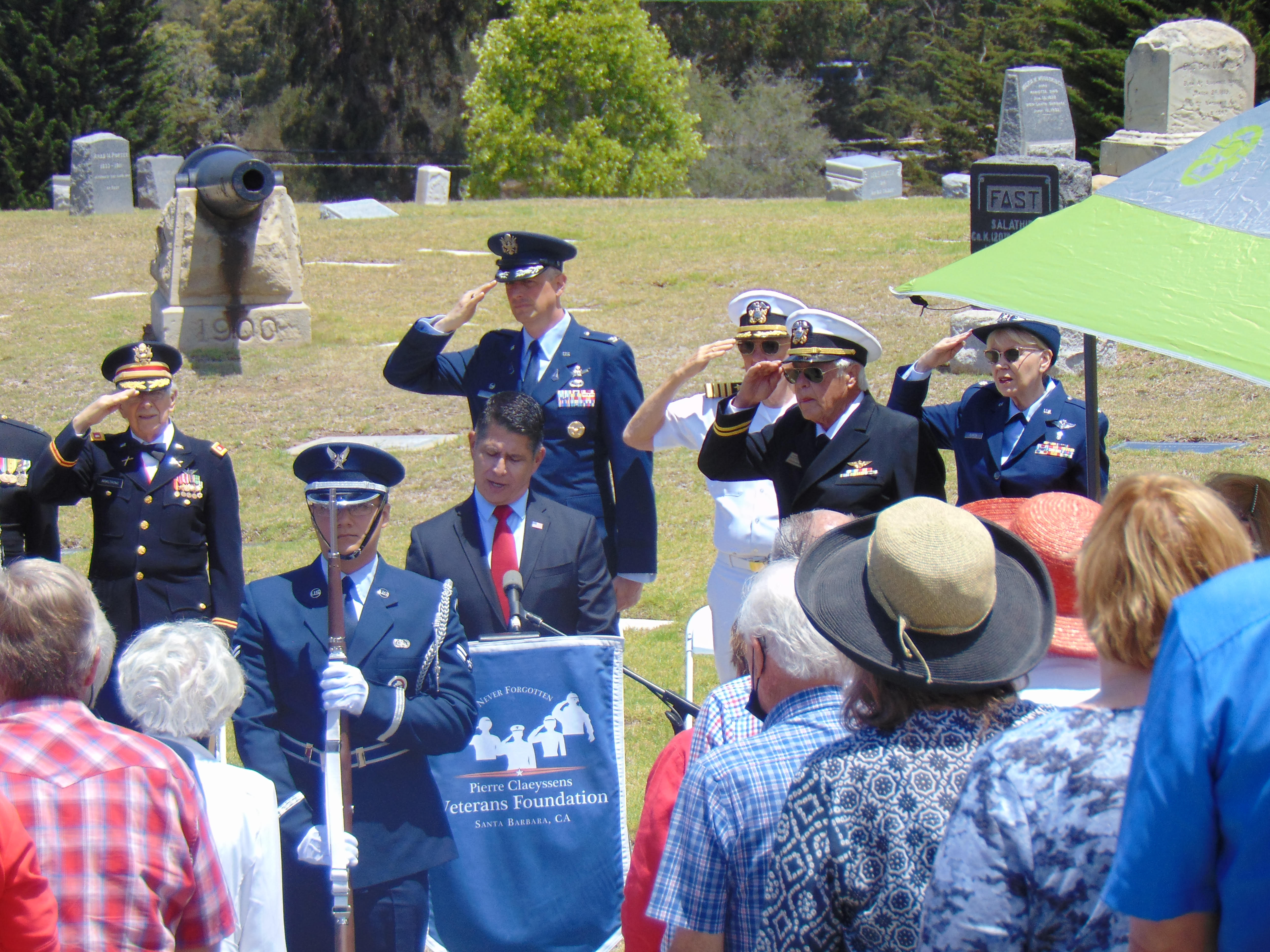Field Notes: July 4, 2021
The Power of Collective Memory

On a picturesque California day, residents gathered at the Santa Barbara Cemetery to commemorate the 245th anniversary of the nation’s founding. Some residents wore masks, though most who gathered on the lawn to observe the speakers and performers assembled by the Pierre Claeyssens Veterans Foundation were mask-free, smiling, and dressed in the colors of the flag. While the ceremony was focused on celebrating the birth of the nation, the director of the foundation, John Blankenship, United States Navy (ret.), made clear that such a celebration was necessary in the wake of the coronavirus pandemic. Those who gathered did so to collectively recall loss and to reflect on the experiment of democracy. In a normal year, an event like this would have been held on Memorial Day, and on Independence Day veterans and local organizations would have participated in a march down State Street in Santa Barbara’s famed July 4th Parade. Alas, the past year has been far from normal.
As the Kim Collins Quartet played songs like “Boogie Woogie Bugle Boy” and “God Bless America,” audience members sang, hummed, and danced along, sharing in a long-overdue moment of energized collective euphoria. Residents of this idyllic seaside community longed for a sense of togetherness. Together they were led in the Pledge of Allegiance by resident and Vietnam veteran Lt. Colonel Patricia Rumpza, United States Air Force (ret.), and were led in an invocation by Lt. Colonel Jack Armstrong, United States Army (ret.), also a Vietnam veteran. As an ethnographer that studies collective memory, I have had the privilege of observing the power recalling a shared past has to unite and reinforce bonds with Vietnam veterans across the Central Coast. Commemorative ceremonies like the observance of Independence Day provide us with the opportunity to imagine communities often separated through race, religion, ethnicity, and gender as unified. Memory is not a fixed point in the past, it is something we are working on in the present and being worked on by.
This year we reimagine our communities as we reimagine normalcy. In this past year we have seen the hope of normalcy renewed by a change in presidential administrations and glimpsed the possibility of a racially just America through the recognition of June 19 “Juneteenth” as a federal holiday and the sentencing and conviction of Derek Chauvin for the murder of George Floyd.
At the Independence Day Ceremony in Santa Barbara keynote speaker Charlie Plumb, United States Navy Reserves (ret.), reflected on the power of collective memory in his heartfelt address when he discussed the most beautiful flag he had ever seen. The most beautiful flag Plumb had seen was not flying atop a marble-clad building nor planted triumphantly over a battlefield. To Charlie Plumb, the most beautiful flag was embroidered under the shirt of a fellow prisoner of war in Hanoi. Plumb told the audience that another pilot named Mike Christian had embroidered the flag under his blouse using materials he made and dyed by hand. Whenever possible Christian would show the flag to his comrades, and they would recite the Pledge of Allegiance. The guards eventually discovered the flag and Christian was beaten for making it, but Plumb also recalled that it was not long before Christian began work on another flag. As Plumb later noted, symbols of collective memory and unity like the flag can be vital to the mental and emotional well-being of a people when things are bleakest.
When we remember together, we construct a shared past that can allow us to forget that which is no longer vital to our well-being and imagine our futures anew. Each time we commemorate the founding of our nation we bring with us ideas about what it means to be an American and relinquish others. One thing that has stood out to me recently in carrying out my fieldwork at commemorative events is, most of the veterans doing the remembering are now of the Vietnam War veterans. Unlike past wars, it is difficult to interpret the Vietnam War as a just war. Unlike WWI and WWII, which ended in an American victory, the Vietnam War ended in acquiescence.
For many years Vietnam veterans carried with them a burden unlike the generations of soldiers that preceded them, and in addition to being discriminated against by non-veteran civilians, they also experienced discrimination from other generations of veterans. Some veterans still say that they continue to feel the effects of the stigma of having served in that war, although veteran’s organizations like the Pierre Claeyssens Veterans Foundation, that have focused attention on the words and stories of Vietnam veterans, and are themselves led by Vietnam veterans have, and continue to do much for improving their image in communities across the United States.
Like Mike Christian’s flag, the idea of America can be conjured anywhere and endure many interpretations. As we all continue the long slow march towards normalcy, we will confront a changing landscape of memories that includes new ideas about what it means to be a citizen of this nation. These are ideas that come from the voices of once marginalized groups of people, including Vietnam veterans, and we will all have to listen closely to what they say as what was once periphery becomes center.
G.L. Smith is a PhD candidate in the Department of Anthropology at UC Santa Barbara.



